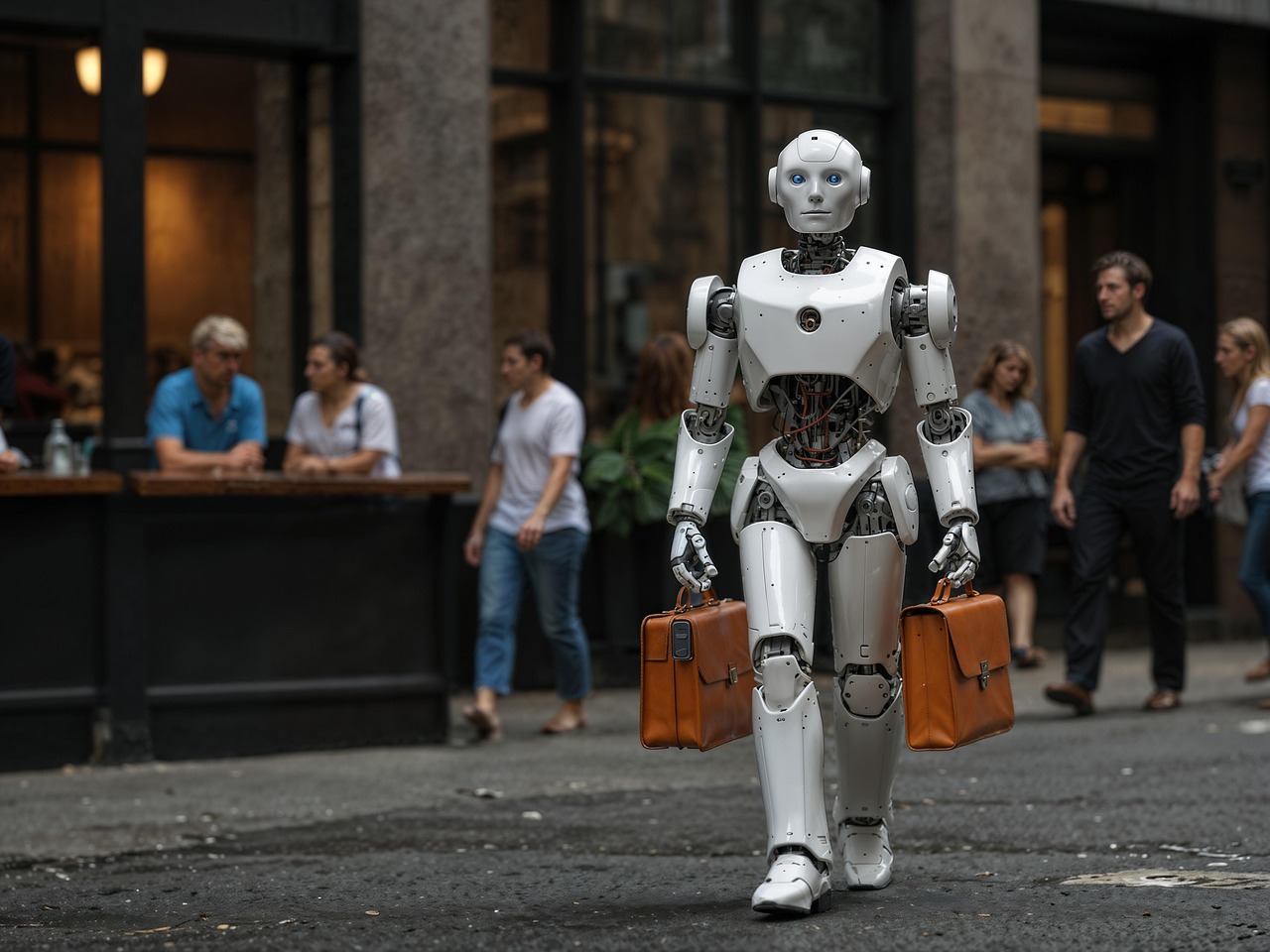Physical Address
304 North Cardinal St.
Dorchester Center, MA 02124
Physical Address
304 North Cardinal St.
Dorchester Center, MA 02124

Home of all Learning...

Home of all Learning...


It was a Monday morning like any other. I grabbed my coffee, sat down at my desk, and opened my inbox
The subject line said: “Departmental Restructure Notice.” Two minutes later, my nine-year career in marketing ended. Not because of performance issues. Not because the company was failing. I was replaced by a machine. An algorithm to be precise. That was my rude awakening. I didn’t fear AI — until I got replaced.
If you’re reading this and think AI taking over jobs is some dystopian clickbait headline, think again. This isn’t about science fiction. It’s the new reality. So how will AI affect jobs in 2025? And more importantly, what does it mean for you?
1. The Silent Layoffs: How AI Has Already Restructured the Workforce
Tech giants lay off workers in 2025 to cut costs and invest in AI. That’s not a prediction. That’s a headline from this week.
In January alone, over 130,000 white-collar professionals lost their jobs across major companies in the U.S. and UK. Departments labeled “redundant” were often the ones being quietly replaced by automation tools like ChatGPT for customer support, MidJourney for design drafts, and AI data scrapers for research teams. The logic was simple: Why pay a salary when a machine can generate the same output 10x faster?
If you’re in the CS job market or adjacent fields, you’ve likely already seen the shift. AI is no longer an experiment — it’s a budget line item.
2. What Jobs Will AI Not Take? (Yet)
Yes, not every role is at risk. Certain human-centric jobs are still difficult for machines to replicate:
So when people ask, “What jobs will AI not take?” the honest answer is: jobs rooted in humanity, creativity, or complex physical nuance.
But even here, it’s not safe forever.
3. I Didn’t Lose to AI — I Lost to Someone Who Knew AI
There’s a viral saying: “AI won’t take your job. Someone who knows how to use AI will.” That line used to annoy me.
Now? It haunts me.
The person who replaced my marketing role wasn’t an AI. It was a 24-year-old with a laptop and a ChatGPT Pro subscription. She knew how to prompt, automate reports, A/B test 10x faster, and generate client-ready decks in an hour. I had a decade of experience. She had five tools and an internet connection.

The point isn’t just that AI is replacing jobs. It’s that the skill gap between “user” and “creator” is the new career cliff.
I spoke to:
None of them saw it coming.
The irony? Every one of them used AI tools. They just never thought they’d be outcompeted by them.
The World Economic Forum predicts 85 million jobs will be displaced by AI by 2030. Some studies suggest the number could be up to 800 million globally by 2050.
But raw numbers hide the real story:
So if you’re wondering, “How many jobs will AI replace by 2050?” — the better question is: how many of those replaced roles will ever come back?
Let’s rewind.
What is an AI? Most think of it as a robot or software. Technically, it’s a system that simulates human intelligence: learning, reasoning, problem-solving.
But in practical terms, it’s an amplifier. It takes your skillset and scales it. Or worse, it replaces the need for your skillset at all.
How do I use Google AI? You probably already are — every time you search, use Gmail’s autocomplete, or ask Google Assistant for something. It’s not future tech. It’s current life.
Can I talk to AI for free? Yes. But what you’re really doing is giving it more data to learn from. Data it could eventually use to outmatch you in your own career.
If you’re in tech, marketing, law, journalism, finance, or education — you need to audit your AI readiness.
Ask yourself:
Because the difference between a layoff and a promotion might be your ability to answer those questions.
To reiterate (and give you some hope):
These roles thrive on unpredictable nuance, emotional depth, or moral judgment. Things AI is decades away from replicating.
But even here, assistive AI is creeping in.
9. Building an AI-Proof Career: What Worked for Me (Eventually)
After three months of joblessness, I did something radical. I stopped resisting AI and started partnering with it.
I enrolled in a short AI-assisted design course. I launched a newsletter about prompt engineering. I built a client base using automated content workflows.
Today, I’m back on my feet. But this time, my job is not threatened by AI. It’s enabled by it.
And that’s the shift we all need to make.
Has anyone lost their job due to AI? Thousands. But it’s not just about loss. It’s about evolution.
The people thriving in 2025 are those who:
So if you’re still asking, “Is it true that AI won’t take your job but someone who knows AI will?” — yes. It’s painfully, urgently true.
The future of work isn’t AI vs humans. It’s AI with humans. Or without you.
Choose your side.